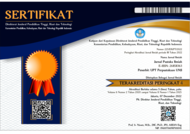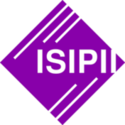Bibliometric Analysis of ICT Research in South Africa
Abstract
Most of the new fixed and wireless communication networks are being provided by local businesses and foreign subsidiaries, indicating the rising popularity of South Africa's ICT sector in the continent's rapidly expanding market. This study analyzes information and communication technology (ICT) research in South Africa and suggests potential development areas in the country's ICT literature. The study focused on publications that published most ICT research articles for 2009–2024. The study conducted bibliometric analysis based on the number of South African publications and citations in ICT research as indexed in the Scopus and Web-of-Science databases. University of South Africa (UNISA) produced 77% of publications between 2009 and 2024. The University of Pretoria (UP) curriculum aligns with worldwide standards. It gives students a thorough grasp of computer science, emphasizing modern software development techniques used in the IT sector. In the same period, the University Of Pretoria (UP) came in second with 49% followed by the University of Cape Town (UCT) at 41%, the University of Johannesburg (UJ) at 29%, The Council for Scientific and Industrial Research (CSIR) at 28%, followed by University of KwaZulu-Natal at 20%, the North-West University (NWU) at 18% followed by University of Western Cape at 15%, University of Fort Hare at 14%, and Tshwane University of Technology, at 13%. Most research areas were education, educational research, information science, library science, environmental sciences, astronomy, astrophysics, multidisciplinary sciences, computer science, and information systems. During this period, South Africa experienced minimal to no publication in ICT research by universities of technology and colleges. The main contribution of this study is to investigate the prevalence of ICT research in South Africa and provide recommendations on how to improve ICT research.
Keywords
Full Text:
PDFReferences
Adedoyin, F.F., Mavengere, N., Mutanga, A. (2022). A simulation experiment on ICT and patent intensity in South Africa: An application of the novel dynamic ARDL machine learning model. Journal of Technological Forecasting & Social Change, 185. https://doi.org/10.1016/j.techfore.2022.122044
Ahmad, H.A., Green, C.J., Jiang, F., Murinde, V. (2023). Mobile money, ICT, financial inclusion and growth: How different is Africa?. Journal of Economic Modelling, 121. https://doi.org/10.1016/j.econmod.2023.106220
Alsagr, N., Ozturk, I. (2024). How do energy security risk and ICT affect green investment? Journal of Economic Analysis and Policy, 82. https://doi.org/10.1016/j.eap.2024.04.027
Ardelean, M., Minnebo, P. (2023). The suitability of seas and shores for building submarine Power interconnections Journal of Renewable and Sustainable Energy Reviews, 176. https://doi.org/10.1016/j.rser.2023.113210
Arnold, S. (2024). African agency in ICT infrastructure provider choice: Navigating Access to foreign finance and technology. Journal of Telecommunications Policy, 48. https://doi.org/10.1016/j.telpol.2024.102713
Atsu, F., Adams, S., Adjei, J. (2021). ICT, energy consumption, financial development, and environmental degradation in South Africa. Journal of Heliyon, 7(7). https://doi.org/10.1016/j.heliyon.2021.e07328
Awad, A. (2022). Is there any impact from ICT on environmental quality in Africa? Evidence from second‐generation panel techniques. Journal of Environmental Challenges, 7. https://doi.org/10.1016/j.envc.2022.100520
Awad, A., Albaity, M. (2022). ICT and economic growth in Sub-Saharan Africa: Transmission channels and effects. Journal of Telecommunications Policy, 46(8). https://doi.org/10.1016/j.telpol.2022.102381
Baumüller, H., et al. (2023). Building digital bridges in African value chains: Exploring linkages between ICT use and social capital in agricultural marketing. Journal of Rural Studies, 100. https://doi.org/10.1016/j.jrurstud.2023.03.010
Evans, O., Mesagan, E. P. (2022). ICT-trade and pollution in Africa: Do governance and regulation matter? Journal of Policy Modeling, 44(3), 511-531. https://doi.org/10.1016/j.jpolmod.2022.06.003
Ganda, F. (2024). The influence of democracy, corruption, economic growth, and ICT on carbon emissions in Sub-Saharan African countries: Does FDI matter? Journal of Open Innovation: Technology, Market, and Complexity, 1. https://doi.org/10.1016/j.joitmc.2024.100324
Herselman, M., Botha, A. (2020). Applying Design Science research as a methodology in post graduate studies: A South African perspective.SAICSIT '20: Conference of the South African Institute of Computer Scientists and Information Technologists, 251-258. https://doi.org/10.1145/3410886.3410903
Kritzinger, E. (2024). University of South Africa’s College of Science, Engineering and Technology. https://orcid.org/0000-0002-5141-4348
Krug, M., Naidoo, A., Williams, L. (2024). South Africa’s oceans and coastal and information management system towards improved ocean access, protection, and governance. Journal of Environmental Management. https://doi.org/10.1016/j.jenvman.2024.120255
Kunkel, S., Matthess, M., (2020). Digital transformation and environmental sustainability in the industry: Putting expectations in Asian and African policies into perspective. Journal of Environmental Science & Policy, 112, 318-329.
Latif, N., Refeeq, R., Safdar N., Liaquat M., Younas K., Ahmad S. (2023). Investigating the role of economic integration and financial development: Rebound effect and green ICT in BRICS. Journal of Sustainable Futures, 6. https://doi.org/10.1016/j.sftr.2023.100126
Liu, C., Wang, K., Goay, M., Yoon, S. (2022). Note: Examining the Gender Digital Divide in ICT: A Closer Look at Ghana, South Africa, and India, COMPASS '22: Proceedings of the 5th ACM SIGCAS/SIGCHI Conference on Computing and Sustainable Societies, 623–627. https://doi.org/10.1145/3530190.3534832
Mehdi, N., Muhammad, I.S. (2023). How does ICT trade shape environmental impacts across the north-south regions? Intra-regional and Inter-regional perspective from dynamic CGE model. Journal of Technological Forecasting and Social Change, 186, 122168. https://doi.org/10.1016/j.techfore.2022.122168
Ngepah, N., Saba, C. S., Kajewole, D.O. (2024). The impact of industry 4.0 on South Africa’s manufacturing sector. Journal of Open Innovation: Technology, Market, and Complexity,10. https://doi.org/10.1016/j.joitmc.2024.100226
Olaniyi, E., Ekundayo, P. M. (2022). ICT-trade and pollution in Africa: Do governance and regulation matter? Journal of Policy Modeling, 3(44), 511-531. https://doi.org/10.1016/j.jpolmod.2022.06.003
Saba, C.S., Djemo, C. R. T., Eita, J.H., Ngepah, N. (2023). Towards environmental sustainability path in Africa: The critical role of ICT, renewable energy sources, agriculturalization, industrialization and institutional quality. Journal of Energy Reports,10. https://doi.org/10.1016/j.egyr.2023.10.039
Van Greunen, D., Fosu, A. (2022). ICT Adoption Challenges: Case of Rural Small-Scale Farmers In The Amathole District Municipality Of South Africa. 2022 IST-Africa Conference (IST-Africa), Ireland, 2022, pp. 1-9, https://doi.org/10.23919/IST-Africa56635.2022.9845556
Yadou, B. A., Ntang, P. B., Baida, L. A. (2024). Remittances-ecological footprint nexus in Africa: Do ICTs matter? Journal of Cleaner Production, 434. https://doi.org/10.1016/j.jclepro.2023.139866
Zondo, S.S., Adu, E.O. (2024). Dynamics of Teaching Practice in South Africa: A Nexus between Theory and Practice. Interdisciplinary Journal of Education Research, 6, 2710-2122. https://doi.org/10.38140/ijer-2024.vol6.06
DOI: https://doi.org/10.20961/jpi.v10i2.86873
Refbacks
- There are currently no refbacks.

This work is licensed under a Creative Commons Attribution-NonCommercial-ShareAlike 4.0 International License.




.png)
.png)









1.jpg)
